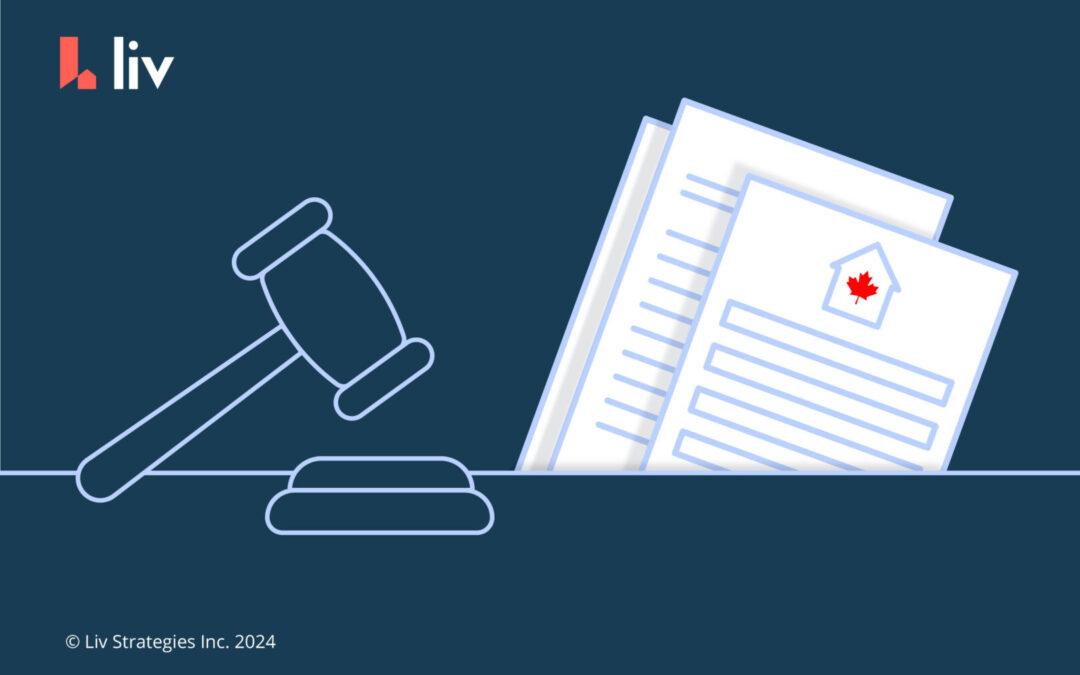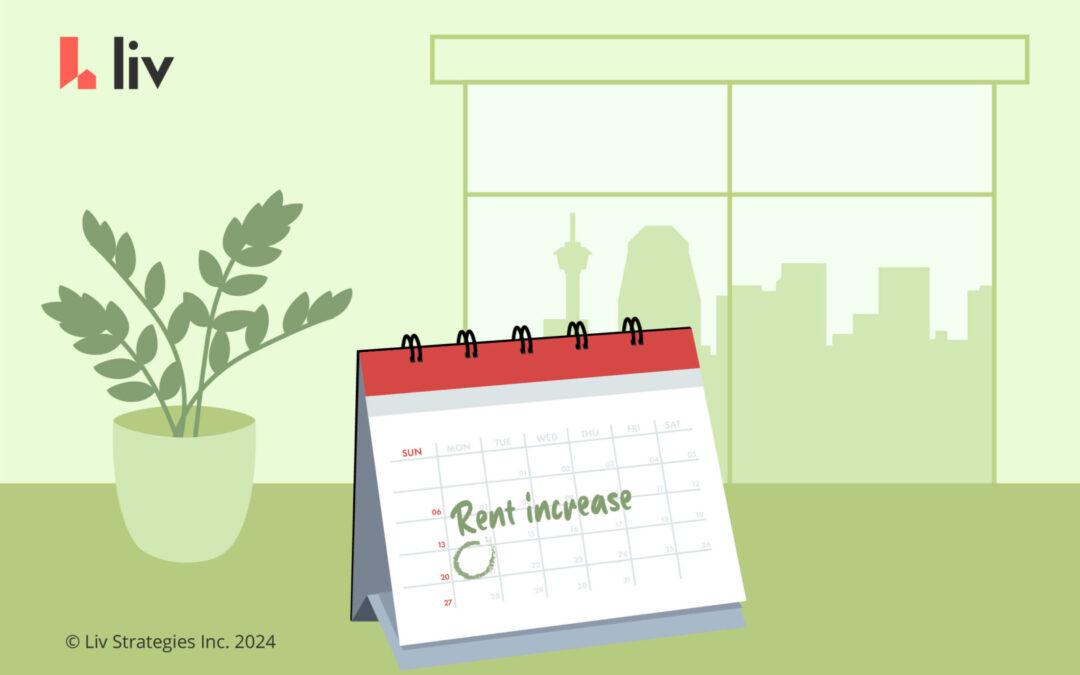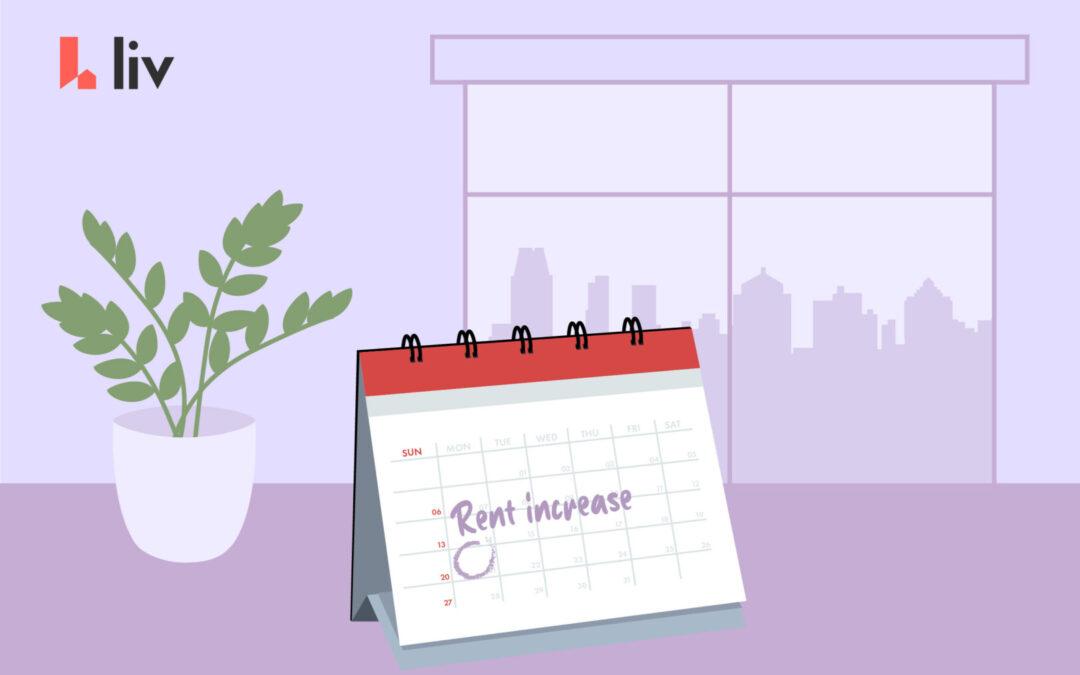The rental process doesn’t end when the lease is signed and the damage deposit is received. For a tenancy to be smooth and hassle-free, both sides need to have a clear understanding of their rights & responsibilities when it comes to things like repairs, maintenance, and interactions with the other party. Unfortunately, these guidelines differ by province so if you’re new to Ontario or just need a refresher, it can be hard to wrap your head around who is responsible for what. To help clear up confusion, liv.rent, Canada’s safest rental platform, has created this guide to landlord responsibilities and tenant responsibilities in Ontario to help both parties navigate their tenancy with ease.
Join Our Newsletter
For more info on rental laws and policies (e.g. eviction, lease agreements, repairs & maintenance), subscribe to get the latest news.
Landlord and tenant responsibilities at move-in
When a new tenancy begins, landlords and tenants have a number of key responsibilities they must carry out to ensure that both themselves and the other party are protected.
Landlord responsibilities
- Property condition: Landlords must ensure the rental property is in a good state of repair, clean, and meets health and safety standards prior to move-in. It’s important to document everything in a condition inspection report and take photos of any pre-existing damage. The unit must be:
- Clean & well-maintained
- Have functioning doors, windows, and locks
- Free from mold or infestations
- Tenancy agreement: Landlords in Ontario must provide a written copy of the Ontario Standard Lease Agreement outlining the terms and conditions of the rental unit.
- Deposit receipts: It’s wise to provide tenants with receipts for any deposits or rent paid upfront. If tenants request these receipts, landlords must provide them.
- Provide information: Tenants should be given a signed copy of the lease agreement that has the landlord’s legal name, address, and contact details to
Tenant responsibilities
- Complete an inspection: Tenants should thoroughly inspect the rental unit with their landlord prior to move-in, noting any damages or necessary repairs in a condition inspection report.
- Tenancy agreement: When presented with a lease agreement, tenants should carefully review the terms and conditions, as well as any addendums, before signing.
- Rent deposit: After signing a lease, tenants must send over the rent deposit when requested. Ontario landlords may collect both the first and last month’s rent upfront since the rent deposit will be used to cover the final month’s payment.
Download your free rental inspection checklist
Thorough inspection of your rental property is needed to avoid disputes over potential damages. Use this free walkthrough checklist during move-in and move-out to assess your unit’s condition.
Landlord and tenant responsibilities during a tenancy
To maintain the rental unit in good repair and ensure fair and equitable dealings throughout the course of the tenancy, there are some key landlord & tenant responsibilities to be aware of.
Landlord responsibilities
- Repairs & maintenance: Maintain the rental unit and address major repairs promptly, ensuring the property is habitable.
- Providing adequate notice: Provide proper notice before entering the rental unit (usually 24 hours) and for any changes in rent or terms.
- Utilities: Ensure essential services (like heating, electricity, and water) are provided and maintained.
- Privacy: Respect tenant privacy and adhere to tenancy laws regarding proper entry and notice.
Tenant responsibilities
- Repairs & maintenance: Inform the landlord of any necessary repairs or required maintenance in a timely fashion.
- Cleanliness: Maintain the rental unit, keeping it clean and free of damage. Remember that damage caused by any guests to your rental property is also your responsibility.
- Comply with the rules: At all times during the tenancy, tenants must adhere to the terms and conditions laid out in the lease agreement, building and housing codes, as well as community or building rules for multi-unit dwellings.
- Giving access: When given proper notice, tenants must allow the landlord access to the rental unit for necessary repairs or inspections.
Landlord and tenant responsibilities at move-out
Even when it’s time to move on, both the landlord and renters still have a number of key responsibilities to account for in order to guarantee a smooth transition between tenants.
Landlord responsibilities
- Return deposits: Return the rent deposit and any other applicable deposits with an itemized list of any deductions within 10 days of the end of the tenancy.
- Give notice: If landlords plan on terminating the lease agreement early, they must provide written notice in accordance with the guidelines for the amount of notice required.
- Property condition: Do a final inspection, noting any damages beyond normal wear and tear.
Tenant responsibilities
- Give notice: Provide proper notice to the landlord before moving out, as specified in the tenancy agreement.
- Cleanliness: Leave the unit reasonably clean and in the same condition as at move-in, apart from normal wear and tear. Landlords are able to seek payment for any damages incurred during the tenancy.
- Inspect the property: Do a final inspection of the rental unit and address any issues or damages with the landlord. Everything should be noted in the same condition inspection report that was filled out at move-in.
>> Recommended Reading: FAQ: Tenant Responsibilities when Moving Out in Ontario
FAQ: Landlord & tenant responsibilities in Ontario
What repairs are landlords responsible for in Ontario?
In Ontario, landlords are responsible for maintaining rental properties in good condition, including most major and regular repairs. This includes:
- Heating, plumbing, and electricity
- Locks and security systems
- Common areas
- Walls, floors, and ceilings
- Smoke alarms and fire safety measures
- Elevators
What repairs are landlords not allowed to do in Ontario?
Tenants in Canada and Ontario specifically have extensive rights and protections granted by the Human Rights Charter and provincial tenancy laws. For example, landlords can’t evict tenants without a specific reason, and may not discriminate based on gender, ethnicity, place of origin, etc.
You can consult this blog article from liv.rent for a list of things landlords are unable to ask for in Ontario, and you can see this page for more information on tenants’ rights.
What are the duties of a tenant in Ontario?
During a tenancy, tenants are required to keep the rental unit reasonably clean and alert the landlord when any repairs are needed. If they cause any damage to the unit, they must repair or pay for the damages themselves. Failing this, landlords may seek compensation after the tenancy to pay for damages.
At all times, tenants must follow the terms and conditions specified in the Ontario Standard Lease and any additional rules set out by the landlord.
Who is responsible for lawn maintenance landlord or tenant in Ontario?
In most cases, landlords would be responsible for lawn maintenance such as mowing lawns in Ontario. This goes for all multi-residential buildings where the yard is a shared space. The exception is in a detached home where tenants have sole access to the space, in which case they would be responsible for lawn care in most cases.
How long does a landlord have to fix something in Ontario?
The Ontario Residential Tenancies Act does not specify a specific timeframe within which landlords must complete repairs. Instead, it simply outlines that they must handle repairs within a reasonable amount of time.
If a tenant feels as though their requests are being ignored or not handled in a timely fashion, they may file a complaint with the Landlord and Tenant Board or apply for dispute resolution.
Is the landlord responsible for replacing a furnace filter in Ontario?
Maintaining a furnace is part of a landlord’s responsibility in Ontario, and they would generally be responsible for replacing furnace filters.
Are landlords responsible for replacing lightbulbs in Ontario?
No, landlords are not responsible for replacing lightbulbs in Ontario. Tenants are responsible for day-to-day cleanliness unless otherwise agreed upon in the lease.
Is a landlord responsible for snow removal in Ontario?
Yes – much like lawn maintenance, snow removal typically falls on the landlord when it comes to common areas. In detached homes with private entries, tenants are often responsible for ensuring these areas are clear of snow.
Is the tenant responsible for water damage in Ontario?
Determining who is responsible for water damage depends on the unique case. If the water damage is caused by a plumbing emergency such as a malfunctioning hot water tank or a burst pipe, it is typically the landlord’s responsibility to cover repairs. However, if the tenant’s actions in some way led to the water damage, they will generally be responsible for the repairs.
Can a landlord evict tenants to do renovations in Ontario?
The Residential Tenancies Act permits Ontario landlords to evict tenants from the property if the scope of these renovations requires the unit to be empty. If the tenants must leave, landlords are required to serve them 120 days’ written notice.
What must the landlord provide in Ontario?
Ontario landlords are required to ensure that their rental properties are in good repair, fit for habitation, and comply with health, safety, housing and maintenance standards, according to the RTA.
Can a tenant refuse to pay rent in Ontario?
Tenants cannot refuse to pay rent in Ontario, even in cases where the landlord refuses to complete repairs or regular maintenance.
What are tenant rights for mold in Ontario?
Ontario landlords are legally required to ensure that their rental units are mold-free at the beginning of a new tenancy and address any tenant concerns throughout.

Rethink The Way You Rent
Not on liv.rent yet? Experience the ease of digital applications & contracts, verified tenants & landlords, virtual tours and more – all on one platform. Sign up for free or download the app.
Subscribe to receive the latest tenant & landlord tips and get notified about changes in the Canadian rental market.
>> Stay up-to-date on the average rent in Vancouver, Toronto and Montreal: Rent Reports.




0 Comments